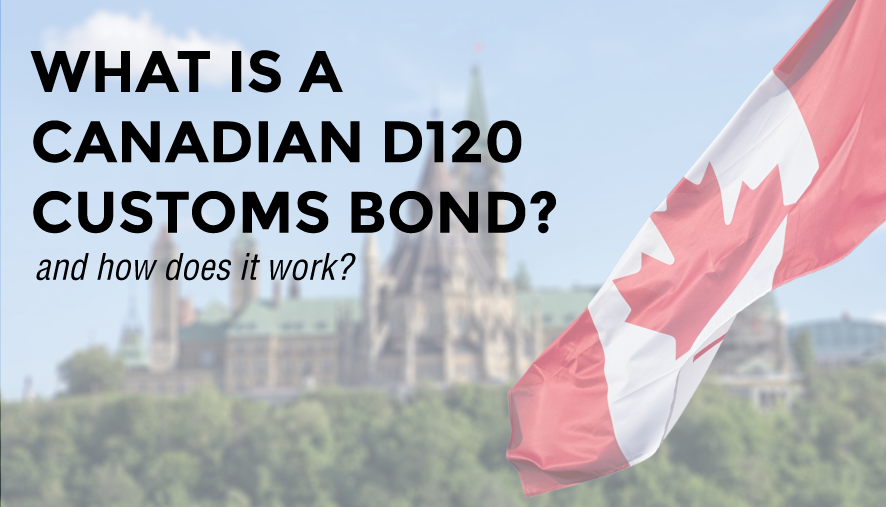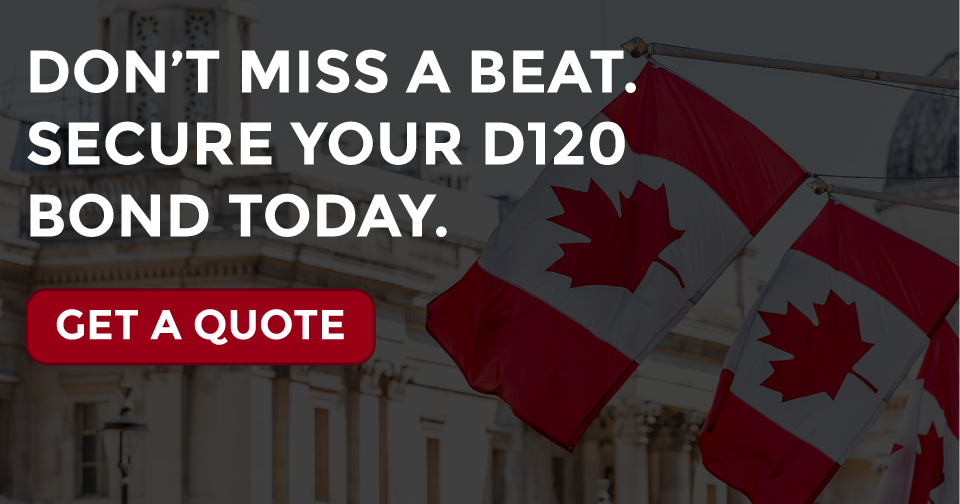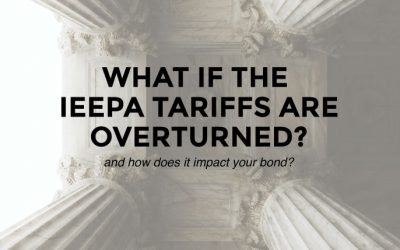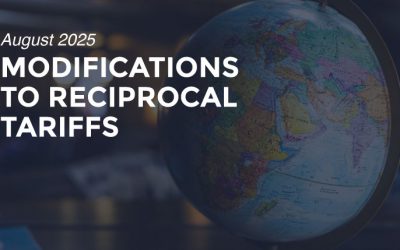With the recent updates implemented by CARM, many Canadian importers need to get more familiar with the Canadian D120 Customs Bond and how it works.
The Canadian D120 Customs Bond has been part of the process of importing into Canada for many years. However, as the Canada Border and Services Agency (CBSA) continues to release updates to the CBSA Assessment And Revenue Management (CARM), new individuals will need to familiarize themselves with parts of the process they did not handle previously.
What is a Canadian D120 Customs Bond?
The D120 Customs Bond is a financial security that importers and Customs Brokers place in order to secure the duties and taxes owed to CBSA if they intend to release their goods at the border prior to the payment of those duties and taxes. The bond is backed by a surety and acts as a financial security that the principal on the bond will pay the money owed to CBSA.
In essence, the D120 Customs Bond is an agreement between the principal, the surety, and CBSA. With this bond in place, importers are able to participate in the Release Prior To Payment Privilege (RPP).
How to Secure a Canadian D120 Customs Bond?
Up until recently, it was common practice for the Customs Broker hired by the principal to purchase a Canadian D120 Customs Bond and then extend that security to the importer in order to participate in RPP. With the release of CARM, this part of the process is changing. It will now be mandatory for each importer to secure their own D120 Customs Bond in order to participate in RPP.
In order to place a bond, an importer must reach out directly to a surety. The surety will typical require specific information about the company that is importing before placing a bond, but once those requirements are met, a D120 Customs Bond can be placed. The requirements will vary depending on the company itself as well as what commodity is being imported.
There are a few different ways to secure a Customs bond all of which have their own requirements and bond sizing terms:
- Post a Continuous Surety Bond (D120)
- Post a Cash Bond
- Post a One-time Single Entry Bond
- Zero Accounts Payable: If this is the case, a bond may not be required
If you need more information about placing a bond or would like a quote, reach out directly to TRG.
What Does the Canadian D120 Customs Bond NOT do?
When it comes to Customs Bonds there can often be some confusion on what they do versus what they do not do. This is typically due to the fact that Customs Bonds are purchased from and backed by a surety (insurance company), but they are NOT insurance. The principal on the bond is typically the importer, but the bond does not provide a form of insurance for that principal.
Instead, the D120 Customs Bond ensures that any money owed to CBSA during the process of importing into Canada will be paid by the principal on that bond. Therefore, the bond secures the Canadian government’s revenue stream. This security that payment will be made is what allows CBSA to provide the freedom of making duty payments after goods have been released.
In the event that the principal is unable or unwilling to pay their duties and taxes owed to CBSA, the bond will then ensure that CBSA receives the money owed, up to the bond amount. However, if this point is reached and the bond does pay out, the principal will then be required to pay that amount back to the surety. It is important to remember that the bond is not in place to pay on the principal’s behalf, but is in place to guarantee that the principal will pay CBSA.
For quick reference, here are some of the things the D120 Customs Bond DOES NOT do:
- Does not pay the duties on behalf of the principal
- Does not cover a loss for goods damaged or lost in transit
If you are looking for a way to insure your goods while they are in transit, reach out to TRG for a quote on Cargo Insurance.







![[Webinar] How Could Changes to De Minimis Impact Your Company?](https://traderiskguaranty.com/trgpeak/wp-content/uploads/2025/05/trg-how-de-minimis-impacts-customs-bond-webinar-400x250.png)